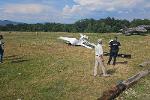SIFs fell by about 7% on the Bucharest Stock Exchange yesterday, one of the sharpest falls of this year.
However, brokers say the decline was "pushed" by the local arbitrageurs, who have speculated the differences between the prices on the spot market in Bucharest and the futures market in Sibiu.
The arbitrageurs, who bought significantly on the Bucharest Stock Exchange and then sold on the Sibiu market in one fell swoop, were able to gain about 10% in two weeks, with no risks attached, which is more than the interest a one-year banking deposit pays.
Some brokers had seen yesterday's fall coming and were talking about "serious nervousness" on the market. On Tuesday SIFs had lost almost 3% with very large trading volumes.
The differences between the prices of the SIF shares on the Bucharest Stock Exchange and those of the futures contracts with SIFs as underlying assets on the Sibiu Exchange had reached 16-17% last week, a huge gap that translates as 12-13% net profit, no risk attached and within two months. "The arbitrageurs who had driven the market in Bucharest up over the last few weeks have started to close their positions and caused the sharp declines on the Bucharest Stock Exchange," explained Octavian Molnar, deputy general manager of IFB Finwest. These thoughts have been echoed by other brokers on the market, as well.
The arbitrage opportunity comes when the difference between the price of a share on the Bucharest market and that of a futures contract with that share as the underlying asset is significant.
Under the circumstances, the arbitrageur buys 1,000 shares on the spot market for instance and sells a futures contract on the same stock, at the same time. Profit comes from the price difference multiplied by the number of shares bought. "Arbitrageurs became more active when the spread between the two markets was 10%. @N









